By Theodore C. Levy (The National Trial Lawyers)
The rights of every American citizen depend on the regulation of the conduct of insurance companies. The relationship between an insurer and an insured is asymmetric, in that the insurer is the powerful one, and the insured is the less powerful party, who needs to be able to rely on their insurance company to act fairly.
The insurance behemoths such as State Farm, Allstate, Progressive, GEICO, Liberty Mutual, etc., are multi-billion dollar companies that have a drastic advantage when dealing with their insureds. Besides the obvious advantage that most insureds will not have the monetary resources to fight their insurance company, most will not have the actual knowledge about what claims they need to bring, when their claim needs to be brought, and what amount money their claim is worth. The insurance company shares both this financial advantage and the analytical advantage.
Insurance companies are for-profit entities and they need to earn money to stay in business. They can do so by properly investing the income they earn off of premiums. They can do so in choosing to write policies only to some people who do not present much risk, and declining to write policies to others. They can do so by aggressive advertising campaigns promising that they are “on your side” or “you’re in good hands.”
However, there is one place where it is entirely inappropriate for an insurance company to be focused solely on profits. That is claims brought by their own insured under a policy that the insured pays premiums on every month for the right to bring a claim. Why is this so important? It’s because of the commodity that they are selling. A car dealership sells cars. A realtor sells homes. An insurance company sells a promise. The promise is that when you pay for insurance with us, you will have the right to make a legitimate claim under the policy. They will take your claim seriously. They will promptly return your calls and correspondence. They will inform you if you are about to blow a deadline to file a lawsuit or if there is a claim that you are able to make that you are unaware of as the uninformed insured. They will make a settlement that is in the realistic range with efforts to avoid drawn-out litigation.
If the insurance company has a policy that amounts to aggressively fighting legitimate claim brought by their own insureds, that is not only unethical, it is stealing. The reason why this is stealing is that an insured pays every month for the right to assert such a claim. The insureds are not paying for a ruthless opponent who will drag things out for years, try to deny coverage on technicalities, compel litigation, accuse them of lying, etc. If an insurance company acts this way, the insured is paying something and getting nothing in return.
Bad faith statutes
Some states have laws that allow an insured to sue his own insurance company for bad faith for a variety of improper conduct by the insurer. The punishment for acting in bad faith may involve the imposition of punitive damages, the payment of attorney’s fees, the payment of the costs of a party, and other damages. The reason that it is so important to have such a statute is that it helps to even out the power imbalance between an insurer and an insured. Only when the prospect being slammed with a bad faith verdict and paying punitive damages is a possibility does the insurer understand that the best financial decision that they can make is to treat their insured fairly.
Think about this. Let’s say you have collision coverage on your vehicle. There is $10,000 of damage caused to the vehicle by an accident, and you make a claim under your policy to have the vehicle repaired, the same policy that you make payments on every month. Let’s say the insurance company makes an outrageous claim that the damage is unrelated to the accident, or that you failed to mitigate damages or another baseless defense. They decline to pay for your car.
Your only option is to sue your insurance company. However, they have a ton of money, adjusters crunching the analytics, and attorneys on staff who are much more knowledgeable about the court system than you. So what is the plan? It’s time to hire an attorney. But it’s only a $10,000 claim. On a 33-40% plus costs fee, you would only likely get $4,000-$6,000 after your attorney gets paid, roughly half the value of the car. You could pay hourly and get billed $200-$300 per hour. The result would likely be the same. The insured gets a far less than complete recovery, and that’s assuming they can even find a lawyer to handle such a case.
Every state should have a bad faith statute. There should also be a federal bad faith statute so that where you live does not limit your rights against insurance companies. The bad faith statute must provide for punitive damages, attorneys fees, legal costs, and other damages that a court sees fit.
I practice in two states, Pennsylvania and New Jersey. Pennsylvania has a bad faith statute. When an insurer has acted improperly when dealing with my client, the threat of a bad faith lawsuit, or in some cases, the filing of a bad faith lawsuit, has made the insurer back down and do the correct thing, whether that means offering more money on the claim or agreeing that coverage for the loss exists. New Jersey has no such statute. The only bad faith is common law bad faith, which is rarely applied in any case. Thus, in New Jersey, insurance companies can do pretty much whatever they want without the fear of any consequences.
An illustrative case
A case that I had recently was illustrative. The plaintiff suffered a herniated disc with cervical radiculopathy in her neck as a result of a crash in which the tortfeasor crossed the median of a road and hit another car head on, throwing that car into the plaintiff’s car. The only coverage to go after was the plaintiff’s underinsured motorist (UIM) policy. The plaintiff did not desire to file a lawsuit against her insurance company, wishing to settle pre-suit. However, her insurer would not budge above $10,000, an arbitrarily low number.
In all efforts to avoid litigation, we set up a non-binding arbitration hearing under her insurance policy. Written discovery was exchanged prior to the arbitration and the plaintiff submitted to a pre-suit independent medical examination.
The format for the arbitration was both the plaintiff and her insurer selected their own arbitrator and those two arbitrators selected a neutral arbitrator. After deliberating, the arbitrators (even the one hired by the insurance company) returned a unanimous award for $65,000. The defense rejected the award, which is not a big deal in and of itself, given the non-binding nature of the proceeding. The thing that was shady was not that they were unwilling to pay $65,000, it was that they still would not budge above $10,000. Therefore, it was a pointless arbitration, a waste of everyone’s time. The insurance company, from the start, knew that they would only accept the arbitration award if it was some minimal number that was in line with their offer, they would not accept any information that was not compatible with their original analysis.
Baffled by their total unwillingness to negotiate despite the $65,000 award, I called the insurer’s defense lawyer. In the phone call, he conceded that they fight UM and UIM cases very hard because the worst case scenario is that they have to pay the policy limits, and not an award that exceeds the policy, as they would in a third party case. I was shocked by his honesty. What he told me was something that I suspected, that internal policies existed at this insurance giant that says that they fight every case hard.
I filed a lawsuit for UIM benefits under the plaintiff’s policy at this point. During the course of the lawsuit, the insurance giant answered interrogatories accusing my client of causing the accident. As a reminder, the accident was caused by the other driver crossing the median of a road and hitting the car right next to my client’s car. The insurance giant knew that my client did nothing wrong. They knew that no information could possibly arise that could indicate my client had a role in causing the crash. They merely did it to preserve the defense, to be a tough opponent.
I’d had enough, filing a bad faith lawsuit. However, unlike in Pennsylvania where you could litigate a bad faith lawsuit concurrently with the UIM action, in New Jersey, these actions are severed. My bad faith claim was dismissed and I was told that I could refile it after the UIM case was over. As a practical matter, I would have to get a trial verdict that greatly exceeded the offer before I could do anything to punish the insurance company.
The litigation continued. Depositions were taken. Eventually, the court arbitration was scheduled. At this hearing, a court-appointed arbitrator reviewed our packets, heard some brief testimony from my client, and awarded $50,000 in favor of my client.
At this point, it seemed like everything was going to work out. The insurance giant scoffed at the first arbitration award. However now that there was a second arbitration award in the same range, surely the insurance giant would take a second look at this one. Even if they wouldn’t pay the $50,000, they would come to the negotiating table. I was very wrong.
Insurance stonewalling
I sent a letter to the defense stating that I would accept the $50,000, even though it was the lower of the two arbitration awards. Not only did the defense appeal, they refused to raise the offer above $10,000. There was nothing to do at this point but to gear up for trial.
The insurance company was going to have to pay their doctor thousands of dollars soon. They would be paying their lawyer thousands of dollars as well for the doctor depositions and trial. Surely this would make them come to the negotiating table. Wrong.
The plaintiff’s doctor testified by videotape. No change in the offer. The defense doctor testified by videotape. No increase in the offer. It had reached the point where there was no doubt whatsoever that the insurance giant had spent more money fighting the case than they had offered in settlement on it. Why would the insurance company want to pay lawyers and doctors instead of their own insured?
My only option is to crush them at trial. A jury hearing that my client’s own insurance company would rather attack her than pay her in a perfectly good case would anger the jurors and get them to award a fair verdict that greatly exceeded the offer. Afterwards, I would pursue the bad faith case and hopefully get a punitive damages award on top of the trial verdict.
Unfortunately, this never happened. In New Jersey, the law dictates that the jury will not hear about insurance, even though the insurance company was the actual party to the case. Instead of trying a case against the insurance giant who would do anything to not pay, I tried a case against the tortfeasor, who had died in the accident.
Several of the jurors, when doing voir dire in the back room, expressed concerns about how this case involves a dead person being sued. I wanted to scream out, “it’s her own insurance company pretending to be a dead guy. They literally will stop at nothing.” However, obviously, I did not do that. That would have been a mistrial.
The defense came up to $15,000 during the trial. They never went higher. My opposing counsel went after my client and her husband extremely aggressively on the stand. My client and her husband did not even wish to sue and it was her insurer who compelled the lawsuit by not negotiating after the arbitration award. My client had never sued anyone else in her entire life before. She had lived a good life. She had never done anything in her life to deserve to be attacked and called a liar on the stand.
The trial concluded. My closing went very well. I hit all my points, showing how frivolous the defense arguments were. I noticed that my client had teared up a little when I walked over to her after finishing the closing. Everything was going to work out. So I thought.
A shocking outcome
The jury went out and deliberated. Liability was stipulated to. The defense admitted causing some injury. Therefore, the one and only question that the jury had to answer was how much money to award the plaintiff. This would probably take an hour at most. I was wrong. The jury was out for nearly five hours. This was longer than the OJ Simpson jury deliberated. What on earth could they be talking about for so long?
Finally, after spending my entire Friday in the courthouse, there was a verdict. $5,000. A nominal award. One-thirteenth of the amount I was awarded in the pre-suit arbitration. One-tenth of the amount that I was awarded in the court arbitration. $5,000 doesn’t even cover my file costs. My firm lost money. My client got zero. I spent probably 100 hours of my time.
It was obvious to me why they deliberated for so long. There must have been several jurors who did not want to slam the estate of the defendant. The State of New Jersey does not allow me to discuss the deliberations with jurors, so I’ll never know for sure. But I can picture the arguments that happened in that jury room. Something about making this dead person pay did not seem right to them. Hadn’t his family suffered enough? Why were the lady and her shady attorney picking on the dead?
I’ve gotten pretty good at concealing my emotions when in court. When things don’t go my way, I shrug it off and move on. This was different. This was not a case with a liability issue. This was not a case where there was no damage to the car. This was not a case where a tort threshold applied requiring my client to prove a permanent injury. There were no issues with this case.
I walked dejected to the parking lot. My client thanked me and told me I did a great job regardless of the outcome. We embraced. I continued to my car. A juror passed me in her car, rolled her window down and said just one word. “Sorry.” I nodded my head and walked past. When I got home I checked my e-mail and it turned out the same juror who said “Sorry” had e-mailed me. She told me that I did a great job and it was not my fault that the award so low. Given that the rules in New Jersey do not allow me to discuss the deliberations with jurors, I did not respond.
I’m sorry too. I’m sorry I couldn’t get money for my client who was a nice lady and was extremely deserving of it. I’m sorry to myself for having wasted so much of my time. I’m sorry the laws did not allow me to disclose to the jury that I was suing my client’s own insurance company, and was not picking on the deceased. I’m sorry that this no doubt will happen to others. It will happen to people more seriously injured to my client. It will happen to people who have medical bills and are out of work and will rely on this money to survive going forward. I’m sorry that insurance carriers have such a powerful lobbying influence in the legislature. How they have sold the American public on tort reform. How they state that insurance rates are going up because of “frivolous lawsuits.” Civil filings have been consistently down. Some “lawsuit epidemic.” Insurance companies and large corporations have sold the American public on a false narrative and convinced people to give up their right to sue in many areas with the vague promise that insurance rates will go down. Insurance rates remain very high, and people have fewer and fewer rights to file in civil court every year.
Insurance companies need to be held accountable. Most people don’t file lawsuits. Most people don’t like personal injury lawyers. Most people come into court expecting, even hoping, that the plaintiff will be exposed as a liar. However, even these people might be in a situation one day where they are badly hurt and a lawsuit is the only choice. This person will believe it would be different because they would be actually hurt, and the insurance company would know their case was legitimate and pay. And they’d most likely be wrong. That person may find himself put on the stand and called a liar solely because some insurance company wants to protect its money.
The situation I described never would have happened in a state where there was a bad faith statute that was actually enforced. Without one, it’s the insurance companies that rule, not us.








